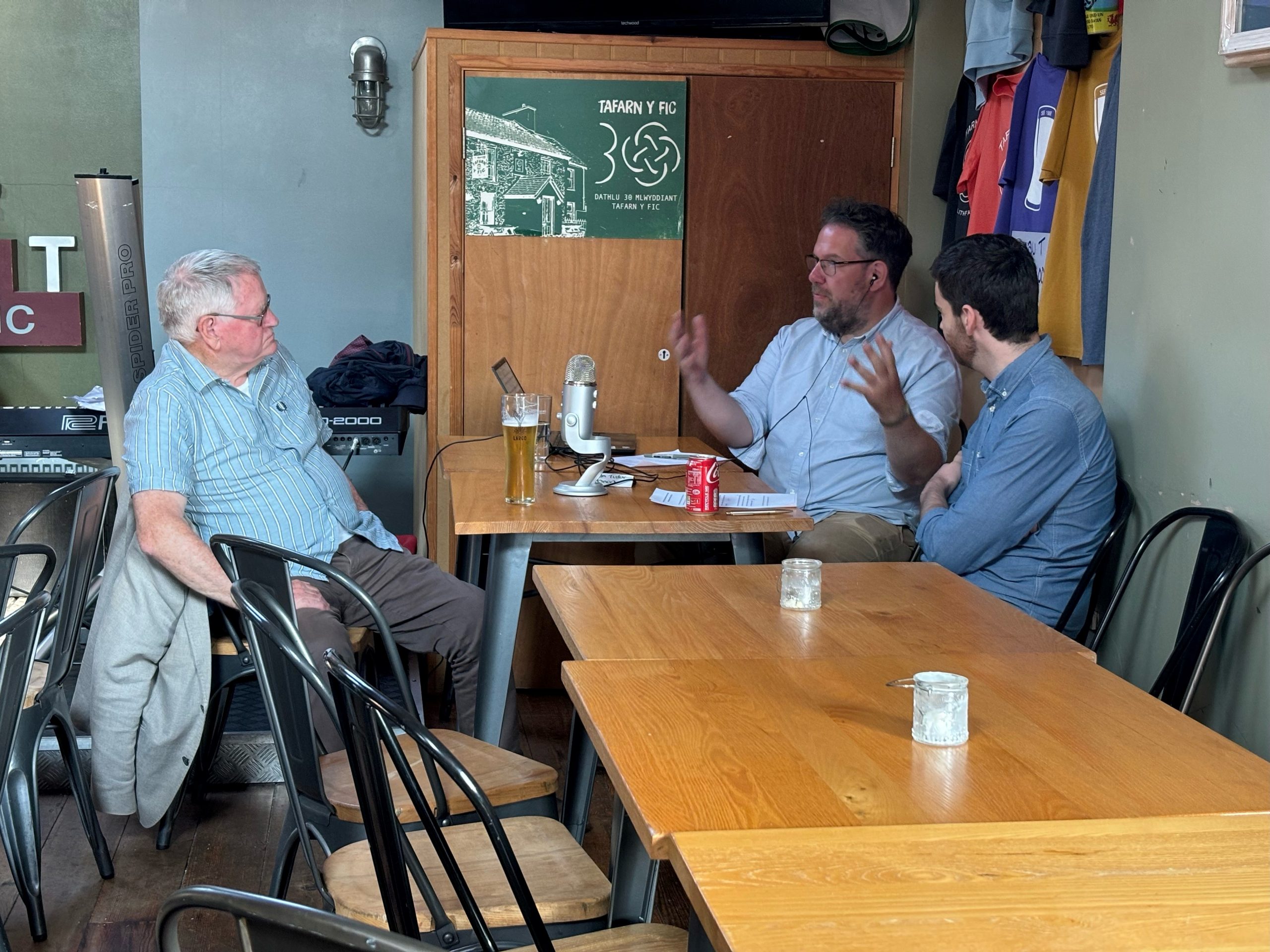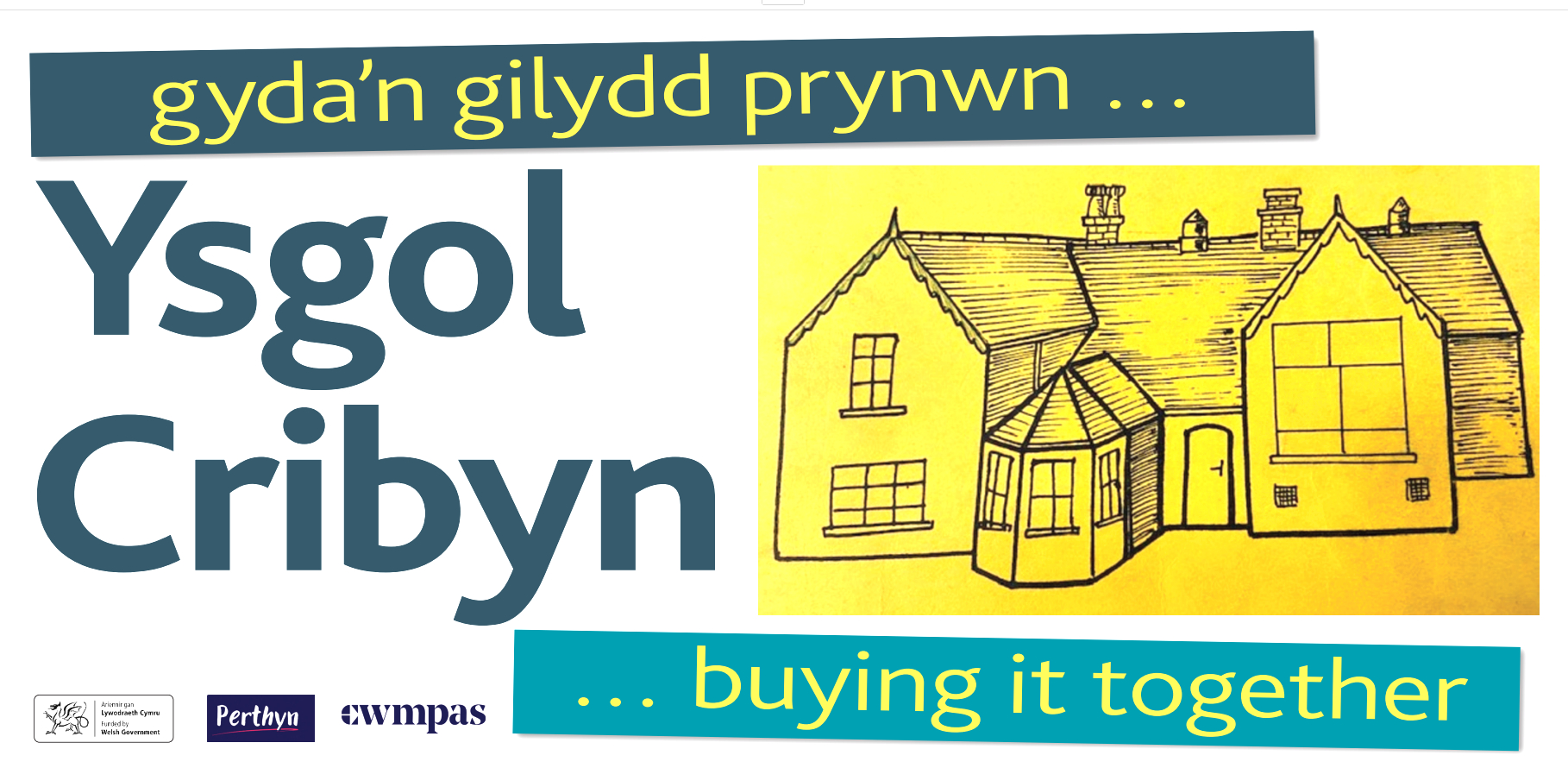The next Welsh Government should promote and legislate for community ownership of assets as a key part of a national community wealth building strategy, argue Casey Edwards and Tom Bateman.
 Communities across Wales are losing assets at an unimaginable rate.
Communities across Wales are losing assets at an unimaginable rate.
In a report this year, the Bevan Foundation found that 25 per cent of places of worship had closed in the last decade, with a further 70 per cent threatened with closure in the next 20 years[1]. Welsh Government Schools Census data reveals that school closures have been seen across all types of school with an overall closure rate of 11 per cent over the last 10 years[2]. In July this year, the British Beer and Pub Association estimated that one pub is set to close every single day during 2025[3]. At the time of writing, Caerphilly County Borough Council is attempting to force through the immediate closure of ten libraries, in the face of fierce local opposition.
The consequence of all these closures is a hollowing out of our communities, a feeling of a sense of place being eroded. That in turn leads to disenfranchisement, disillusionment and distrust in government and institutions.
 If communities are not empowered to protect the assets they value, we risk seeing the places we are so proud of losing their history and identity and being developed in a way that doesn’t maximise social value.
If communities are not empowered to protect the assets they value, we risk seeing the places we are so proud of losing their history and identity and being developed in a way that doesn’t maximise social value.
This was exactly the topic of conversation of recent a podcast recording that we attended between singer and activist Dafydd Iwan, Bangor University’s Dr Edward Thomas Jones (senior lecturer in economics), and Dr Gareth Evans-Jones (lecturer in religious studies) in the fitting setting of Europe’s first community-owned pub, Tafarn y Fic.
There are, of course, many examples from across Wales of inspiring stories of communities coming together to save vital local assets. Take the location for recording of this podcast, taken over by the dedicated local community in the 1980s and continuing to thrive today, not just as somewhere to get a crisp pint of local beer, but as music venue, a classroom for Welsh learners (it hosts a monthly quiz for learners at Nant Gwrtheyrn), a community space for all ages.
And the more recent example of Capel Rhondda shows what communities can do. This vital and historic community asset was saved and kept in the hands of the community against all odds because of an inspirational individual, a newsworthy story that captured hearts and minds, and with the help of promotion by influential people like Michael Sheen.
At Cwmpas, we are working every day to help communities to keep their much-loved assets.
That’s why we know that Capel Rhondda and Tafarn y Fic are the exception, not the rule. While some communities have the capital (both human and financial) to rally to save assets, systemic barriers, a lack of community power and complex processes means that this is not often replicated across Wales.
Take Capel Bethenia in Pistyll: the community organised a fundraising campaign to save the chapel, marketed as a holiday home, but lost out when it was sold at auction for double the asking price. Or Port Dinorwic Marina in Y Felinheli, where the community established a social enterprise to buy the failing marina, backed by TV personality, Tudur Owen. The community were eventually gazumped by a private consortium. And who could forget Guildford Crescent in Cardiff; petitions, protests and the Guildford Peasants could not save the historic buildings (or the facades).
How many more assets are we going to lose whilst we do not have supportive systems in place to empower and enable communities?
Falling behind
In 2022, the Institute of Welsh Affairs (IWA) found that Welsh communities are the least empowered in Britain.
That report called for a major shake-up of community policy in Wales to bring it up to speed with Scotland and England. Since then, the Labour UK Government have gone even further in England through the English Devolution and Community Empowerment Bill.
The IWA found that ‘despite conceptions of Wales as a communitarian nation, defined by tight-knit communities, our research paints a picture of public policy divorced from this ideal, and shows Welsh communities to be the least empowered in Britain’. This policy framework is out of step with public sentiment, with polling from YouGov showing overwhelming public support for community ownership legislation.
Often in Wales, we see community groups succeed in taking on community assets by sheer force of will, despite reporting sometimes feeling like everything is against them. These case studies of hard-won community ownership underscore these legislative gaps:
Ysgol Cribyn (Ceredigion): 15 years since the closure of the local primary school, the local community in Cribyn are bringing this much-loved building back into use. The group have ambitions to reopen the school as a community centre of culture and collaboration, as well as an affordable home for local people. After two years of community fundraising and engagement, negotiations with the local council continue. Such determination showcases community strength, yet the process has been unnecessarily arduous due to gaps in support and legal mechanisms.

Green Squirrel (Cardiff): Green Squirrel – an inspirational environmental social enterprise rejuvenating abandoned and under-utilised land in the centre of our capital city – spent five years trying to obtain a derelict plot in Splott for a community green hub. Only after extensive fundraising, public petitions, and drawn-out negotiations with the city council did it secure a lease for the Railway Gardens site. This hard-won victory, achieved with no clear legal pathway to claim unused land, illustrates the significant delays and barriers urban groups face under current frameworks. The team’s resilience was exemplary, but a clearer statutory route could have delivered this vital community space much faster and with less uncertainty.
Aberdyfi Post Office (Gwynedd): In Aberdyfi, the community have saved and re-opened the much-needed local post office, a vital service in this remote community. In this case, the private owner of the building engaged and worked with the local community, giving them exclusivity on the building as well as a discount. As well as saving the post office, the community are refurbishing the flat above as an affordable home for a local family and bringing the adjacent workshops back into use for employment opportunities. But a complex and competitive funding environment slowed the project and jeopardised its viability at multiple points.
What’s next?
We must develop Welsh legislation for community ownership – drawing on lessons from Scotland and England to introduce strong legal rights for communities to take ownership of local assets, ensuring a clear and accessible process.
It is essential that we back legislative change with investment in support – providing dedicated funding streams to support community buyouts, including pre-acquisition support, patient capital, and long-term finance options and specialist support that ensures that this is an option for all communities, not just those with existing capacity and resources.
We should recognise community and co-operative ownership as an economic development tool – actively using community ownership to drive local economic renewal and strengthen foundational economies. There are clear opportunities across different sectors – from social care and housing to community energy and credit unions – to build a new generation of co-operative and mutual businesses that keep wealth and decision-making in Welsh communities.
The Bevan Foundation’s 2025 report indicated that faith-owned land and buildings alone have the potential to deliver more than 1,300 homes through the redevelopment of unused places of worship and associated buildings and an additional 5,500 homes through the release of faith-owned land holdings. Imagine how many more social and affordable homes we could develop with stronger rights for the community to save and bring back to life community assets.
Because community ownership is more than just a means of saving vital local assets – it is a powerful tool for economic resilience, democracy, and long-term prosperity. By ensuring that key buildings, land, and infrastructure are owned and run by the communities they serve, Wales can create a fairer, more sustainable economy that builds community wealth and re-balances local economies.
Casey Edwards is community-led housing programme manager and Tom Bateman is community-led housing co-ordinator at Cwmpas
[1] Transforming-communities-affordable-homes-from-unused-faith-owned-spaces.pdf
[2] Schools’ census results | GOV.WALES
[3] Britain set to see a pub close every single day in 2025, BBPA warns | BBPA